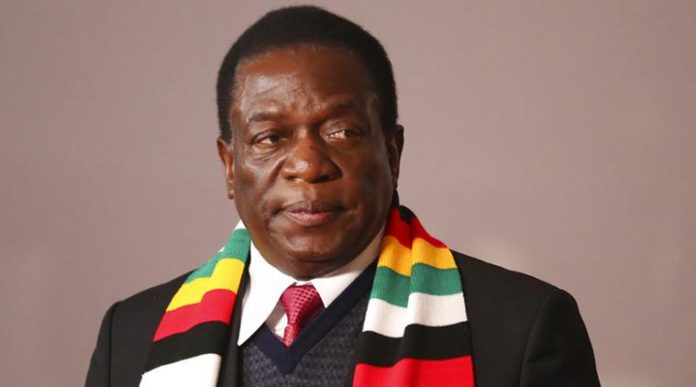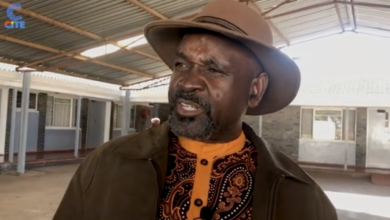EFF castigates Zim govt for land compensation deal

South Africa’s Economic Freedom Fighters (EFF) has castigated President Emmerson Mnangagwa’s administration for agreeing to compensate displaced white commercial farmers for improvements made on the land they lost under the country’s land reform exercise.
Zimbabwe signed an agreement Wednesday worth US$3.5 billion to compensate white farmers who were evicted from their farms during the controversial land reform redistribution programme in 2000.
But local economists have argued the cash strapped government cannot afford to make the compensation.
In a statement, EFF led by firebrand Julius Malema said Mnangagwa’s priorities were set wrong as that money could have been directed to other sectors such as health.
“Mnangagwa … hopes that this will bring closure to the instability brought about by the forced return of Zimbabwean land back to Zimbabwean people. We are of the firm view that Mnangagwa is either deeply misinformed about the real causes of the crisis in Zimbabwe or
is simply catapulting to the pressure from the white supremacist world,” said the party.
EFF said paying white farmers compensation would not solve Zimbabwe’s crisis that emanated from political challenges.
“Either way the treasonous act of paying to white settlers money that Zimbabwe does not have will not resolve the crisis in Zimbabwe, which is essentially a political crisis resulting from years of mismanagement at the centre of which Mnangagwa features prominently,” the party claimed.
“It must also be noted that the push for the repossession of the land in Zimbabwe was not initiated by the State. At the time Zimbabwe gained its independence, the framework for land reform was premised on a market-led reform programme whereby the State with the assistance of Britain was required to purchase land from White landowners for land
redistribution purposes.”
EFF noted this framework was based on the 1980 Lancaster Agreement which provided that the government would not engage in compulsory land acquisition and land distribution was to take place under the principle of ‘willing buyer, willing seller’ whereby the government would ‘pay promptly adequate compensation’ for the property.
“When this failed to return Zimbabwe land back to Zimbabweans, it was the ordinary person on the street, together with war veterans who started forcefully taking back their land in Zimbabwe. This action found a willing political leader in the form of a resolute and ideologically clear leader in (the late) President Robert Mugabe,” the party said.
EFF claimed by paying compensation, President Mnangagwa was now “not only passing on the graves of the many heroic men and women who laid down their lives for the return of Zimbabwean land, but also desecrating the legacy of Mugabe, from whom he violently took power in an unprincipled coup.”
“This action is a serious blow on the idea of decolonisation in the continent. It is reminiscent of the forced debt France imposed on Haiti, when the Haitians liberated themselves from slavery wherein France demanded payment for loss of property,” EFF said.
EFF was emphatic that the crisis in Zimbabwe is a direct consequence of the “political ineptitude of the ruling elite there, their deeply embedded cronyism and their insatiable desire for theft of public funds.”
“It has been proven time and again that ordinary Zimbabweans who received the land as a result of the fast track land reform programme are actually working the land and producing at levels that would be much higher, if there was a targeted support programme from the state,” the party alleged.
EFF added that “Mnangagwa will be remembered as a clueless ideological amoeba who was prepared to trade of important gains of the struggle in order to be liked by Whites.”
The party condemned the compensation and described it as an “act of betrayal by Mnangagwa and call on ordinary Zimbabweans to reject this wasteful use of money that should be directed towards building hospitals in Zimbabwe.”
Upon signing of the agreement, President Mnangagwa said the agreement brought “both closure and a new beginning in the history of the land discourse.”
According to the agreement, 50 percent of the $3.5 billion would be paid within 12 months from the day of signing, while the balance will be spread out over five years.






